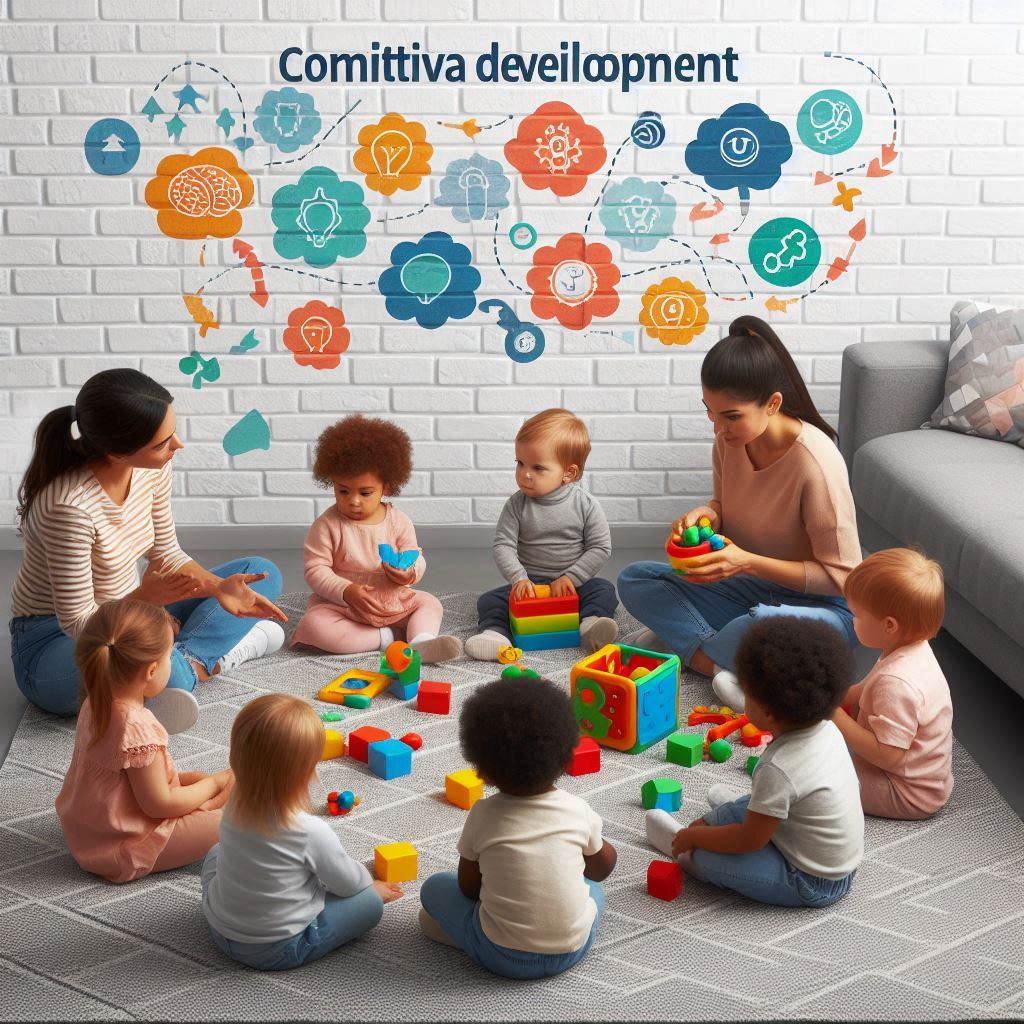Cognitive Development with Example
Cognitive development refers to the process through which individuals acquire and enhance their intellectual abilities and thinking skills as they grow and mature. This development encompasses a wide range of mental processes, including perception, memory, problem-solving, language acquisition, and abstract reasoning. It is a fundamental aspect of human development and is typically studied in children, but it continues throughout one’s life.

Here are some key stages of cognitive development, along with examples:
Sensorimotor Stage (Birth to 2 years):
Example: Object Permanence
- During this stage, infants develop their understanding of the world through sensory experiences and motor actions. A classic milestone in this stage is the development of object permanence, which is the realization that objects continue to exist even when they are out of sight. For example, if you hide a toy under a blanket, a child with object permanence will actively search for the toy.

Preoperational Stage (2 to 7 years):
Example: Egocentrism
- In this stage, children develop symbolic thinking but still lack the ability to think logically. They may exhibit egocentrism, which is the tendency to view the world from their perspective only and have difficulty understanding others’ viewpoints. For instance, a child might believe that if they like a certain toy, everyone else must like it too.
Concrete Operational Stage (7 to 11 years):
Example: Conservation
- Children in this stage start to think more logically about concrete objects and events. They are capable of understanding concepts like conservation, which is the idea that the quantity of a substance remains the same despite changes in its shape or arrangement. An example would be pouring the same amount of liquid into different-shaped glasses and recognizing that the amount is unchanged.

Formal Operational Stage (11 years and older):
Example: Hypothetical Thinking
- During this stage, adolescents and adults develop the ability to think abstractly and engage in hypothetical and deductive reasoning. They can solve complex problems and consider multiple possibilities. An example would be a teenager being able to think through the consequences of various choices before making a decision, such as considering the potential outcomes of different career paths.
Note:
It’s important to note that cognitive development is not limited to these specific stages, and individuals may progress through them at different rates. Furthermore, cognitive development is influenced by genetic, environmental, and cultural factors, and it continues throughout a person’s lifetime as they acquire new knowledge and skills.
